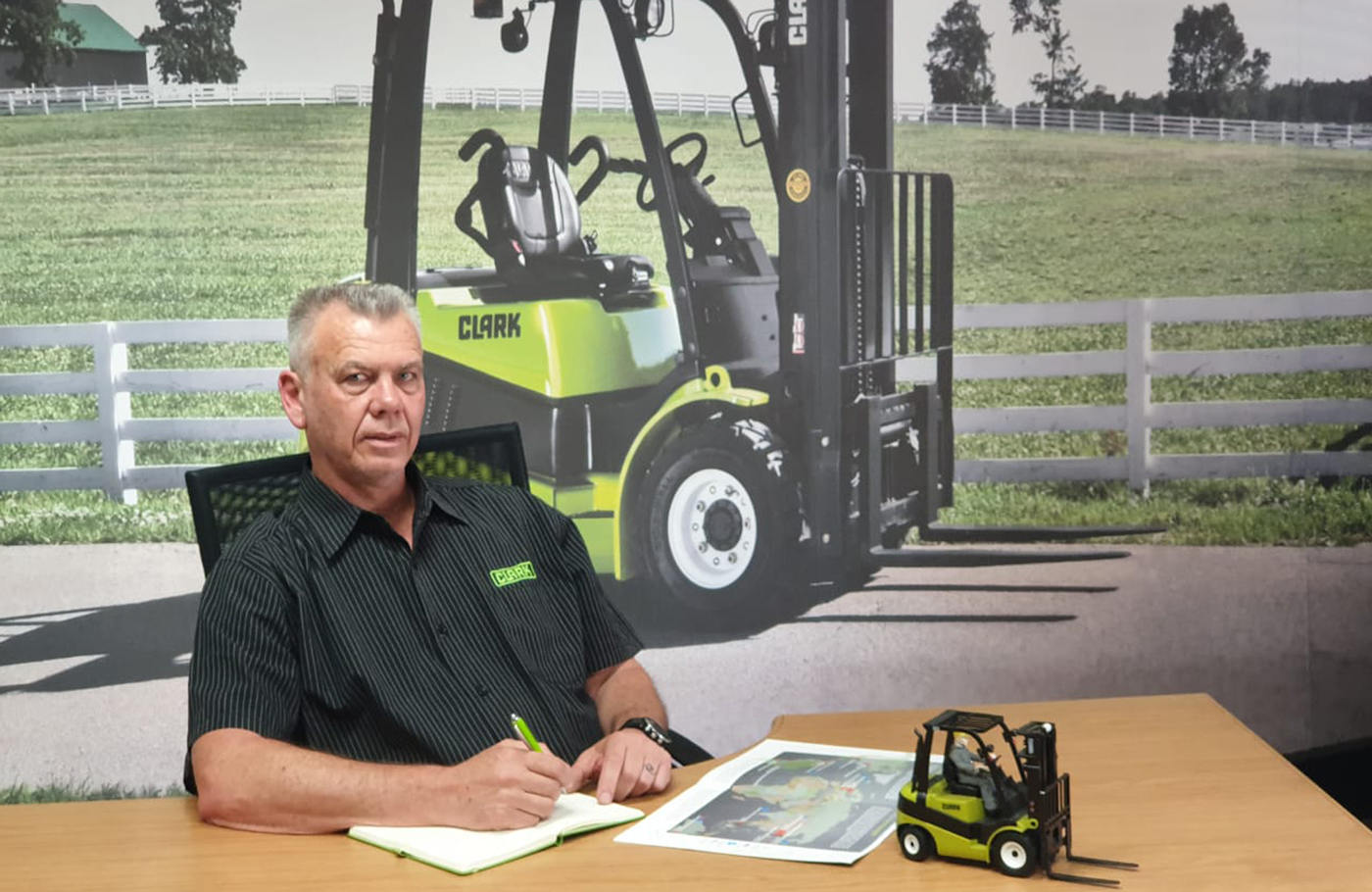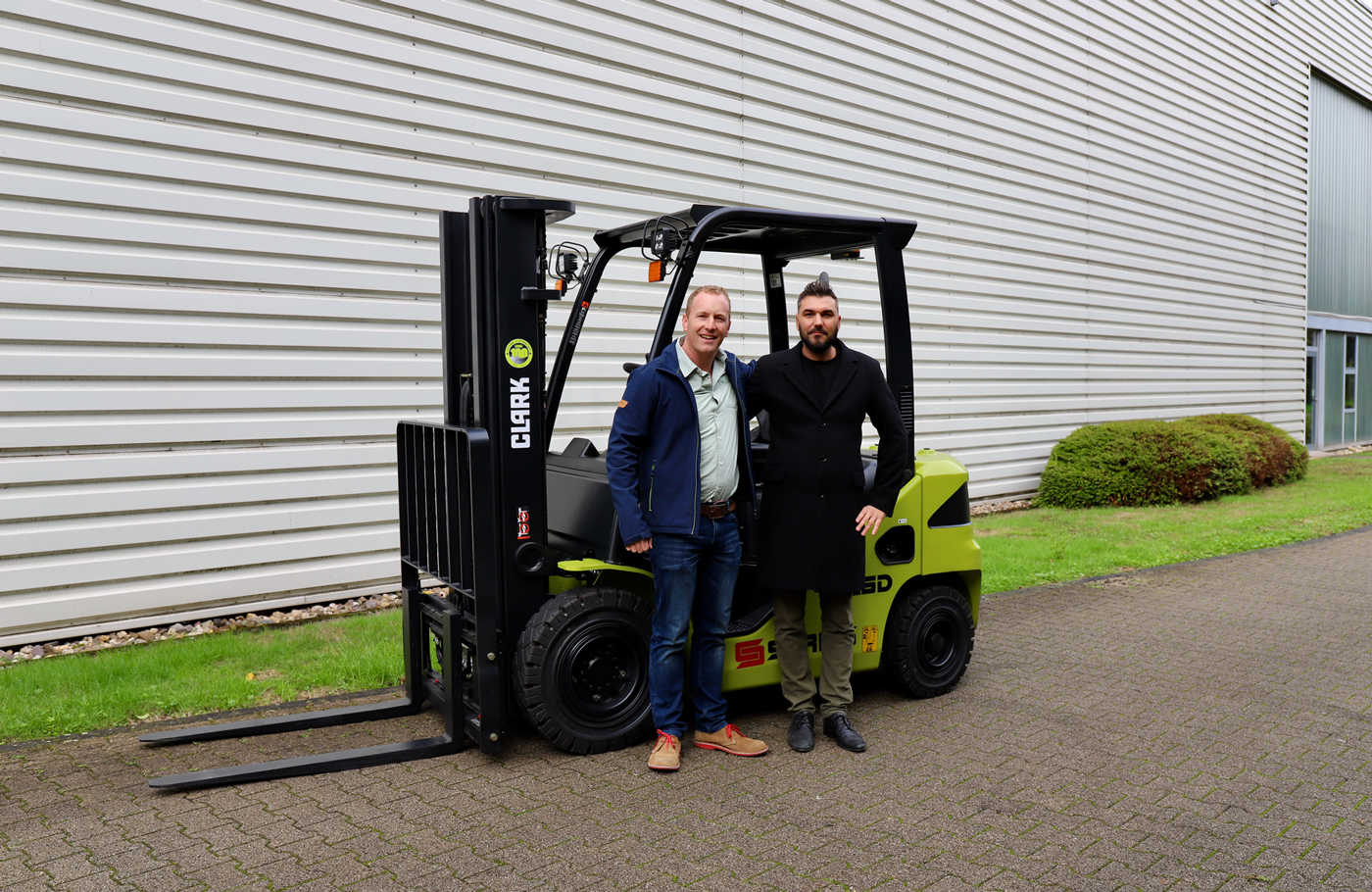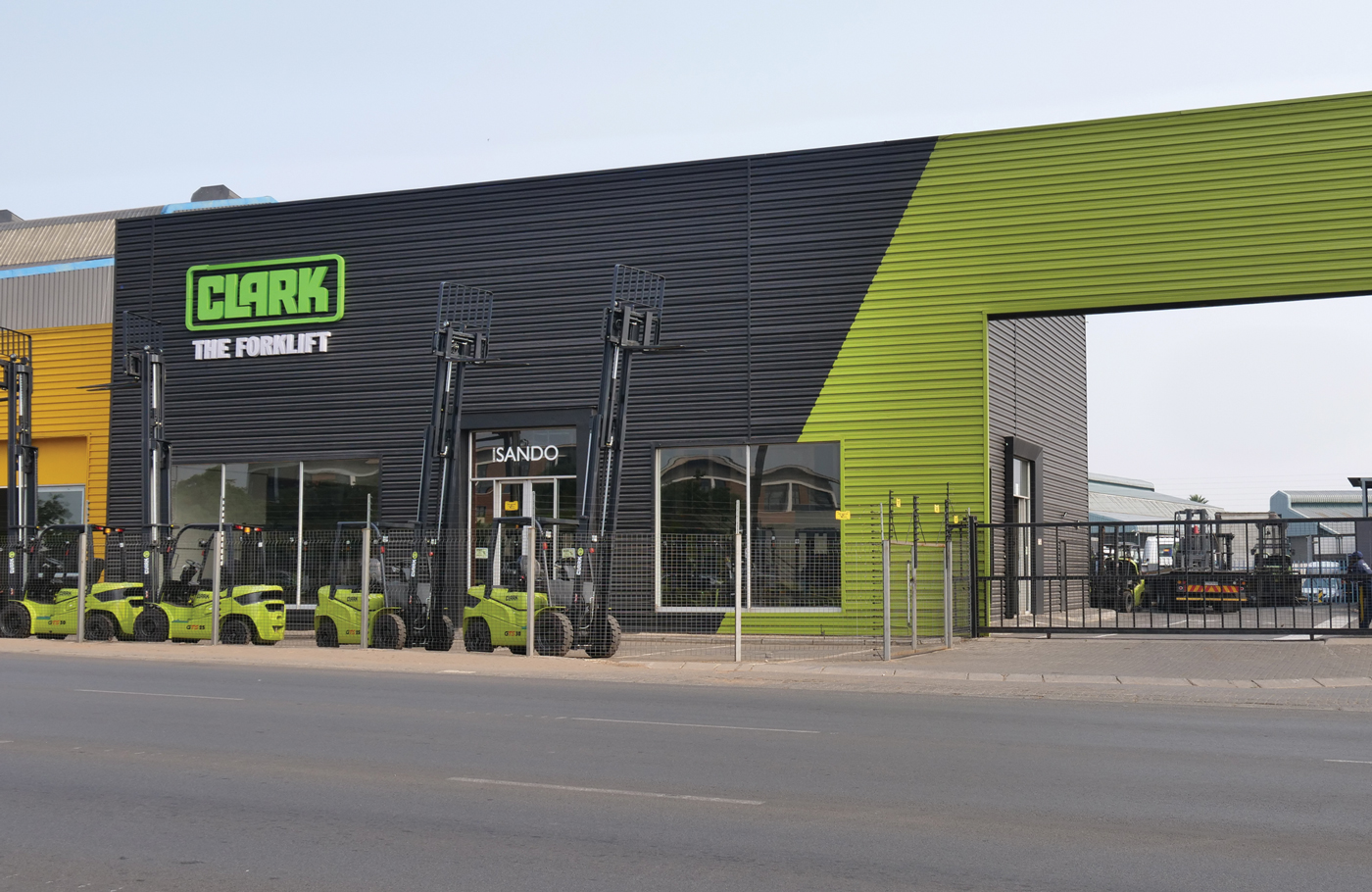Despite all adversities, the market has recovered
Despite all adversities, the market has recovered
South Africa is – as the most industrialised country in Africa – the largest economy on the continent. However, the Covid-19 pandemic has hit hard and posed major challenges for the emerging country at the southernmost tip of Africa. Jonathan Cotterell (divisional director of Kempston Fleet businesses) and Grant Brehany (divisional manager of Kempston Material Handling – Forklift business) explain the adversities the South African material handling market must overcome in these difficult times and discuss the positive trends that are nevertheless emerging for this materials handling company.
How has the South African market developed in the last three years since the start of the Covid-19 pandemic?
Jonathan Cotterell: South Africa is one of the countries hit particularly hard by the pandemic. Many businesses were legally forced to stop trading in the 2020 lockdowns. In addition, there were major riots in Durban last year and floods in the same city earlier this year, as well as the nationwide return of load shedding. All of that has made for a challenging environment in which to do business and many people have had to endure a really difficult time. But we South Africans are resilient and tough, and many companies are succeeding despite the major challenges. In the meantime, the forklift market has recovered, and our order situation is good at the moment.
Which materials handling vehicles are most in demand in South Africa?
Grant Brehany: The demand for warehouse equipment has increased significantly in South Africa; we have quite a demanding customer base here. Many large international players who rely on modern and intelligent logistics solutions are based in the country. They want a mix of forklift trucks and warehouse equipment in their warehouses, or in other words, the right machine for every application. Electric forklifts are also enjoying increasing demand, as larger companies in particular are paying increasing attention to the total cost of ownership (TCO), as well as environmental considerations. Even though South Africa is not at First World levels of environmental regulation, we still have many globally competitive companies that not only want to be efficient, but also modern and environmentally friendly. However, the good old-fashioned internal combustion engine forklift is still a dominant player in the South African market. There is still a huge demand for reliable and robust diesel engine-powered forklifts, and we can offer our customers exactly what they want across all these options.
What are the special challenges that dealers of materials handling equipment currently face in South Africa?
Brehany: It is not easy to find qualified people; good technical service staff are in particularly short supply. For this reason, we have invested a lot in training and growing our team and we are looking to increase the number of apprentices we employ. Some of our competitors have also battled with stock in recent years due to Covid and related supply chain challenges, so we have been fortunate to have had a good supply from Clark and good parts and machine availability.
Clark launched counterbalance trucks with lithium-ion technology for the first time at the beginning of 2022. What role does Li-ion technology play in the South African market?
Brehany: As I mentioned earlier, there is a shift towards electric forklifts. It’s a positive surprise given the electricity supply challenges in our country, and increasingly clients are aware of lithium-ion for power backup. Unlike lead-acid batteries, lithium-ion batteries are maintenance-free. This is an advantage, because during a particularly hectic working day people tend to forget to refill the water in the lead-acid battery. If the battery then breaks down, it becomes very expensive. With the lithium-ion battery, handling is much easier: no maintenance is necessary, and the customer can easily recharge the battery without damaging it. In addition, the life cycle of the battery is much longer. The operator can therefore not only increase productivity with the use of Li-ion batteries, but also save costs around maintenance, infrastructure, and replacement batteries. Li-ion is an absolute game changer in enabling the move from diesel and gas forklifts to electric and its lower cost of ownership.



Above (from left to right): Grant S. Brehany, divisional manager, Kempston Material Handling – Forklift business, Durban, South Africa; Kempston’s branch in Isando, Gauteng, South Africa; Kempston’s Jonathan Cotterell (left) with Sven Vangermain, regional sales manager at Clark Europe, who is responsible for the support of the Middle East and South Africa regions.
What role do the new S-Series IC engine-powered counterbalance trucks with load capacities of four to 5.5 tonnes play in South Africa? Does the local market demand vehicles with active safety systems as well as extensive additional equipment?
Brehany: Clark has a particularly strong presence in the South African market with IC forklifts in the five to eight tonne capacity range, as these trucks are considered strong and reliable. Clark has a good reputation across the IC range, but especially with the big trucks. The new S-Series will therefore be received with great interest, as it is just as robust and reliable as the old series. It also has some good improvements, though, especially in the form of preventive safety features. In addition, numerous optional extras are available for the truck, with which customers can tailor the forklift to their specific use. The new Clark S-series 40-55 is the perfect mix of a modern and robust forklift truck without technical gadgets that drive up costs during repairs. Especially for our customers in the mining industry, the S-Series is very interesting.
How important is truck rental compared to the sale of new equipment in South Africa?
Brehany: It is of crucial importance. The rental business accounts for 80% of our total business, because many customers want high flexibility and appreciate the simplicity of the included maintenance. We have always been strong in rental – especially of trucks and bakkies through Kempston Truck Hire, which is a well-known brand in South Africa. Since the rental of industrial trucks is also in high demand on the market, it was obvious to add Clark’s forklifts to the rental business offering.
How do you ensure the supply of spare parts and after-sales service?
Cotterell: We have one of the most extensive branch and sub-dealer service networks in South Africa. This network takes care of the after-sales service of Clark Material Handling machines. We stock more than R7.5 million of Clark spare parts in our spare parts centre, that we can deliver at short notice.
What special demands do customers nowadays make of an authorised dealer that go beyond the usual business?
Brehany: Besides good and reliable products, clients want a supplier they can trust. A good relationship with clients and reliable service are most important. These are values that people have always wanted, but that are more and more difficult to find.
Is preventive maintenance relevant for South African customers? Is there a trend in the last two to three years?
Brehany: Preventative maintenance forms the cornerstone of any successful fleet operation; customers are becoming increasingly aware of the importance of preventative maintenance to ensure the reliability and longevity of the material handling equipment serving their operations. A poorly maintained piece of equipment is never conducive to long-term reliability. As the OEM supplier of equipment, we tailor suitable preventative and full maintenance packages for our customers based on site-specific needs to ensure maximum availability of reliable, safe-to-use equipment.
Why did you decide to partner with Clark Europe?
Cotterell: We come from a commercial vehicle rental business background, so it has always been our wish to include material handling equipment in our rental fleet – but only if we had the right product. The Clark brand has always had a good reputation in South Africa: it stands for robust, powerful, and reliable trucks and solid know-how in the field of material handling. This – along with the fact that we share the same values and both can look back on a long company history – made it an easy decision for us to partner with Clark.
Published by
Focus on Transport
focusmagsa




